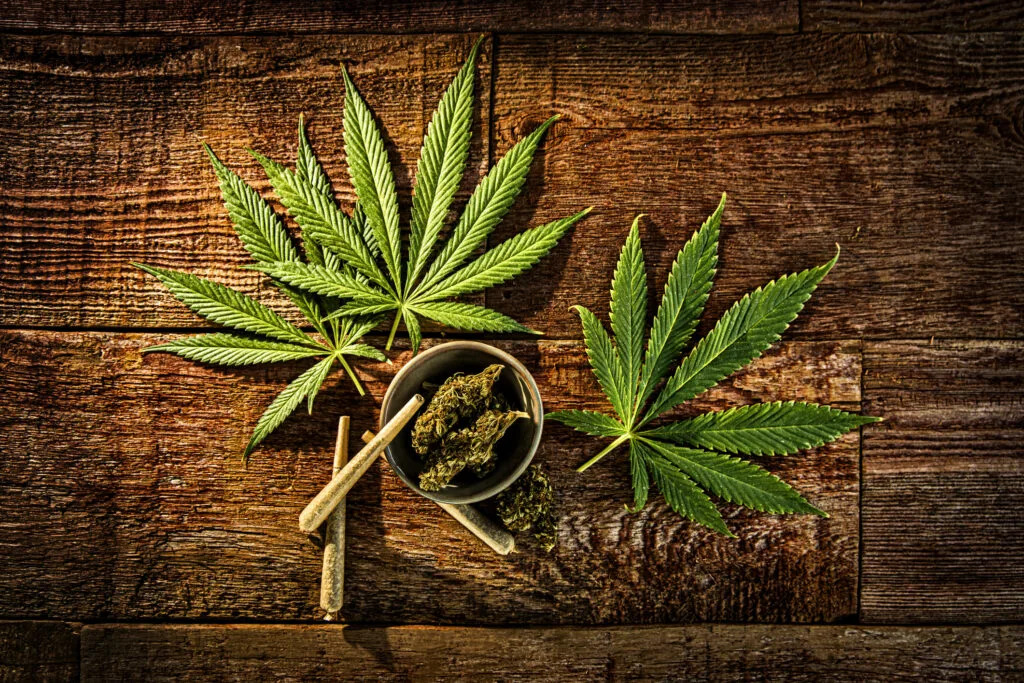State Reps. Dan Frankel (D-Allegheny) and Rick Krajewski (D-Philadelphia) are rolling out a substantial new recreational cannabis legalization bill. According to Frankel, it outlines a model that would see cannabis sold in state-owned stores like liquor, while making room for private businesses in other parts of the industry, like growing, cultivation or bar-like consumption sites.
Frankel said that cannabis could ideally be sold at existing liquor stores and that the bill would expand the Liquor Control Board into the Liquor and Cannabis Control Board.
“It’s a substantial bill,” Frankel told the Capital-Star. “It’s a complex issue and trying to address many different aspects of adult use.”
Both Frankel and Krajewski have been deeply involved in conversations about what a legalization bill would look like. Frankel was the chair of the House Health committee and Krajewski led a subcommittee on health care which held hearings on cannabis.
The bill itself has not been made public yet, but a memo seeking co-sponsors has outlined some of its goals. Chief among them are criminal justice and social equity aspects.
The memo says the bill would include a path to expungement for people previously charged with cannabis-related crimes, reinvestment into communities particularly affected by the war on drugs, and equity components designed to help minority business owners and others impacted by prohibition enter the cannabis industry. But few details have been provided so far.
Rep. Napoleon Nelson (D-Montgomery), chair of the Legislative Black Caucus, said those criminal justice and equity-focused aspects will be important in winning the caucus’ support.
Pa. Legislative Black Caucus advocates for social equity in any legislation to legalize cannabis
“There has to be real criminal justice reforms that come with now endorsing and building an industry that is based on a model that folks have been locked up for and taken away from their families,” Nelson said. “There has to be opportunities to rebuild both the entrepreneurs in that space and also the communities that were impacted by that loss of economic activity.”
Nelson said he has not read the bill yet, but has had previous discussions with its authors
“I feel comfortable that many of the Legislative Black Caucus priorities will be incorporated into this bill.”
The bill, if taken up, is almost certain to go through major debate and potential changes. The existing cannabis industry has opposed a state store model. Republicans have also made efforts to privatize Pennsylvania liquor sales, and expanding the Liquor Control Board’s purview to include cannabis may be a tough sell.
A spokesperson for Senate Majority Leader Joe Pittman (R-Indiana) did not immediately respond to a request for comment.
Other bills to legalize recreational cannabis in Pennsylvania have been introduced in the past, and Gov. Josh Shapiro has voiced his support for legalization in some form. Advocates and lawmakers hope that there will be greater interest this session as lawmakers look for ways to balance the budget after spending increases last year.
Brittany Crampsie, a spokesperson for the pro-cannabis lobbying group Responsible PA, said the group is “thrilled” to see lawmakers taking on legalization as lawmakers prepare for a new session. Responsible PA represents some of the largest cannabis businesses in the country, including chain dispensaries.
Crampsie said that certain social equity aspects may be difficult to achieve with a state-store model, as opposed to allowing private dispensaries and incentivizing minority business owners to open them. Frankel, however, said that the bill would support minority business owners in other parts of the cannabis industry. He said the bill would create an office of social equity in the proposed Liquor and Cannabis Control Board.
The memo announcing the bill also said it would include “public health protections,” such as “limiting excessive THC levels” and prohibiting “predatory marketing.” Depending on the limitations, this could also raise issues with the cannabis industry lobby. Though Crampsie said Responsible PA is willing to work with lawmakers.
“Opening up a market that is ready, safe, responsible on day one is our priority,” Crampsie said. “We aren’t going into this to play hardball on every single thing our members want in every single piece.”
As it stands, cannabis remains illegal federally. Though 24 states have already legalized recreational use, including five of Pennsylvania’s six neighboring states.
H/T: news.yahoo.com



